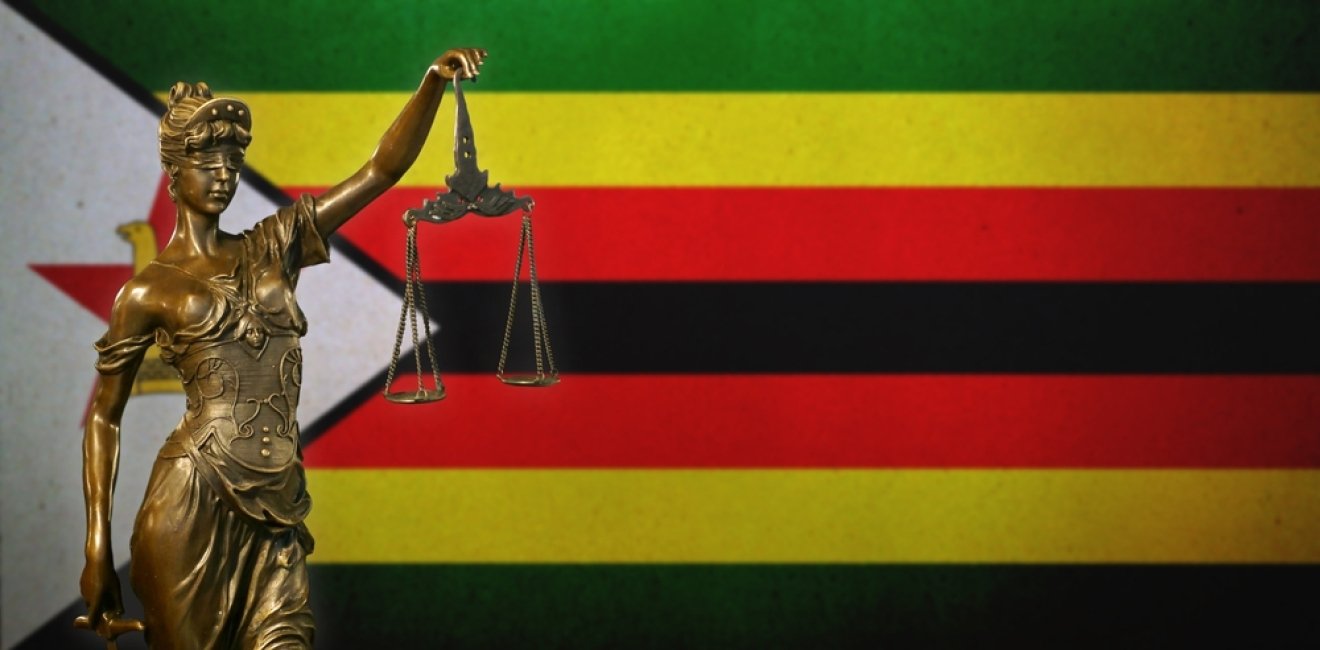
A blog of the Africa Program
Through an executive order on March 4, 2024, President Joe Biden terminated the national emergency that revoked the Department of the Treasury’s economic sanctions which had previously been imposed on Zimbabwe. This pivotal moment presents an opportunity for Zimbabwe to advance transitional justice by addressing long-term concerns about gross human rights violations and extreme political violence committed by the Zimbabwean government and security sector against civilians.
Zimbabwe has a long-standing history of political instability marred by human rights abuses, violent conflict and accusations of corruption in government. The United States responded to these issues by imposing economic sanctions intended to influence the government to address these challenges. The economic sanctions were initiated under former U.S. president George W. Bush’s administration on March 7, 2003 on Zimbabwe’s former president Robert Mugabe and 76 other senior officials on accusations of “undermining democratic processes or institutions in Zimbabwe”.
Notably, the move to terminate sanctions in Zimbabwe is not without limitations. Deputy Secretary of the Treasury Wally Adeyemo cited that the United States “remains deeply concerned about democratic backsliding, human rights abuses, and government corruption in Zimbabwe.” As a result, the Treasury—using their jurisdiction under the Global Magnitsky Program—implemented the Global Magnitsky Human Rights Accountability Act to impose sanctions on Zimbabwean President Emmerson Mnangagwa including 11 senior government officials, business people and three entities. Adeyemo also specified that “the changes we are making today are intended to make clear what has always been true: our sanctions are not intended to target the people of Zimbabwe. Today we are refocusing our sanctions on clear and specific targets…”
The pathway for transitional justice presented by the lifting of sanctions are exemplified in Adeyemo’s statement: “These changes to our approach provide an opportunity for the Government of Zimbabwe to undertake key reforms to improve its record on human rights, good governance, and anti-corruption.” Taking into account that transitional justice processes and mechanisms seek to promote accountability, address human rights violations and foster national healing and reconciliation in post-conflict societies, this would be an opportunity for the Zimbabwean government to take accountability for both pre- and post-independence human rights atrocities perpetrated by themselves and the security sector.
Shadows of the Past
Since the 1980s, the Zimbabwean state has demonstrated a pattern of using state cleansing as a weapon to create the ‘politics of fear.’ This has been characterised by “identifying a dangerous other and then cleansing” through the means of “imprisonment, intimidation, torture or even death” (Hammar, 2007:214)[i]. Following independence, some notable security sector-led operations responsible for human rights abuses include Operation Gukurahundi, Operation Tsuro (‘Rabbit’), Operation Murambatsvina (‘Drive out Rubbish’) or (‘Restore Order’), and Operation Makavotera Papi? (‘Who did you vote for?’). However, human rights abuses and political violence still remain a major aspect of the political landscape in Zimbabwe.
In the absence of a well-defined transitional justice policy, past and existing initiatives have often been limited by the politics of convenience wherein there is a lack of accountability, institutional reform, political will and a prevalence of dismissiveness towards the experiences of victims and survivors of state-engineered human rights abuses.
Previous attempts at post-independence national healing and reconciliation include The Unity Accord (1987), the Organ for National Healing, Reconciliation and Integration (ONHRI) (2008) and the existing National Peace and Reconciliation Commission (NPRC) (2018). These transitional justice and peacebuilding initiatives were established to assist in addressing past human rights abuses and injustices. Although they will not be individually examined here, it is important to note that a common gap in all of the initiatives is a lack of accountability for the past, consolidating a culture of impunity.
The Zimbabwean Government
The recent lifting of sanctions provides a pathway for developing extensive transitional justice reforms. The implementation of a transitional justice project in Zimbabwe could be initiated through the collaboration of government institutions, international organizations including NGOs and civil organization organizations, each of which can fulfil a specific role according to their mandate and expertise. Government institutions could lead operations related to reparations programs, legal and institutional reforms, while international organizations and NGOs could provide institutional capacity-building and technical assistance to promote the establishment and implementation of transitional justice mechanisms in Zimbabwe. Civil society organizations could document and monitor human rights violations, as well as promote victim’s participation.
Making the most of reengagement with the United States, the Zimbabwean government can focus on developing a clearly defined, effective, inclusive and gender-sensitive transitional justice policy and commit to upholding human rights, democratic values and accountability for past injustices. Through an inclusive dialogue with victims and affected communities, they can promote national healing and reconciliation. This can be achieved by meaningfully engaging and collaborating with relevant stakeholders in Zimbabwe and the international community.
International Institutions
A transitional justice process in Zimbabwe may require the pivotal role of the UN as a mediator and facilitator in the dialogue of negotiating the terms of a transitional justice project between government officials, civil society organizations, legal experts, victim groups and other relevant stakeholders. The involvement of the UN could help establish legitimacy and inclusivity in this process. However, for effective engagement, certain components of the transitional justice process may need to exclude individuals implicated in human rights violations from participating directly.
The United States
The United States government can provide expertise and training programs to enhance the capacity of the relevant institutions in Zimbabwe’s transitional justice process including legal and security sector institutions, and civil society organizations. American private sector companies can invest in civil society-led efforts centered on transitional justice, including public awareness campaigns and the promotion of victim’s rights. Those companies based in Zimbabwe could integrate transitional justice priorities initiatives that foster community healing and reconciliation, such as the Corporate Social Responsibility (CSR) program.
Challenges
Challenges that can potentially hinder the transitional justice process are inevitable including political resistance, financial constraints, and multifaceted social and cultural dynamics. However, laying the foundation for a more just, peaceful and inclusive society will require the government of Zimbabwe to promote accountability through addressing past abuses. Will they rise to the occasion?
[i] Hammar, A. 2007. Criminality, Security and Development: post-colonial reversals in Zimbabwe’s margins. In The Security Development Nexus Expressions of Sovereignty Securitization in Southern Africa, edited by L. Burr, S. Jensen & F. Stepputat. London & New York: Routledge.
Author

PhD Candidate and Researcher, Center for Mediation in Africa (CMA), University of Pretoria

Africa Program
The Africa Program works to address the most critical issues facing Africa and US-Africa relations, build mutually beneficial US-Africa relations, and enhance knowledge and understanding about Africa in the United States. The Program achieves its mission through in-depth research and analyses, public discussion, working groups, and briefings that bring together policymakers, practitioners, and subject matter experts to analyze and offer practical options for tackling key challenges in Africa and in US-Africa relations. Read more

Explore More in Africa Up Close
Browse Africa Up Close
The Innovative Landscape of African Sovereign Wealth Funds



